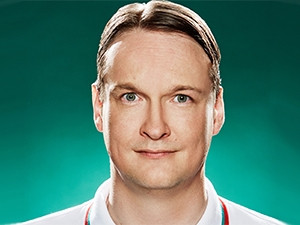
In 2015, the word "cyber-security" became trendy, says Kaspersky Lab.
Perhaps for the first time in history, issues relating to the security of the Internet and the protection of internal networks became relevant to every sector of the economy, and to everyday life, it adds.
According to Dirk Kollberg, senior security researcher global research and analysis team at Kaspersky Lab, 2015 saw near-exponential growth in all areas related to cyber security.
Kaspersky Lab has seen a massive growth in detected threats in SA over the last year, adds Kollberg.
The Kaspersky Security Network found the threats detected locally in 2014, compared to threats detected until mid-November 2015, tripled, he notes.
"Such an increase certainly shows that SA is a growing target for cyber crime, and is a country that needs to pay attention to this reality and the future trends and predictions in this space."
Also, there are more and more companies choosing to keep their data in the cloud due to the reduced costs and the growing Internet speed, says Kollberg.
Therefore the opportunity for malware writers to steal company data has become a much bigger risk than a few years ago, he adds.
"While this may be the result of the continued growth in Internet infrastructure and technology innovations, it shows that cyber criminals are paying attention to the region and subsequently, organisations are being impacted by the threats occurring."
Furthermore, this year agreements on cyber security were signed between Russia and China, China and the US, as well as between China and the UK, says Kollberg.
These agreements include not only facilitating commitment and mutual co-operation, but an assurance that both sides will seek to prevent attacks on each other, he adds.
Kollberg believes now that cyber security has entered popular culture, there will be more awareness and preventative measures.
Kaspersky Lab says cyber activity during 2015 was "elusive", with cyber criminals proving hard to catch, and cyber espionage actors who were even harder to attribute, and with privacy often the most elusive of all.
"Cyber attacks have achieved the impossible - they have thinned the walls of bedrooms and offices around the world."
This year's cyber events have resulted in a sharp increase in interest, not only in the world's media but also in the entertainment industry - this will not change in 2016, it will only be taken to a higher level, says Kollberg.
In 2016 we are going to see more people and devices connected to the Internet, generating more data and traffic than ever before, says Darryn O'Brien, country manager at Trend Micro Southern Africa.
Further security complications will emerge in companies due to the addition of connected devices like wearables and the Internet of things, he adds.
All of the above will increase the risk of being targeted by advanced persistent threats which are very difficult to detect without the correct security process, people and technologies.
Share